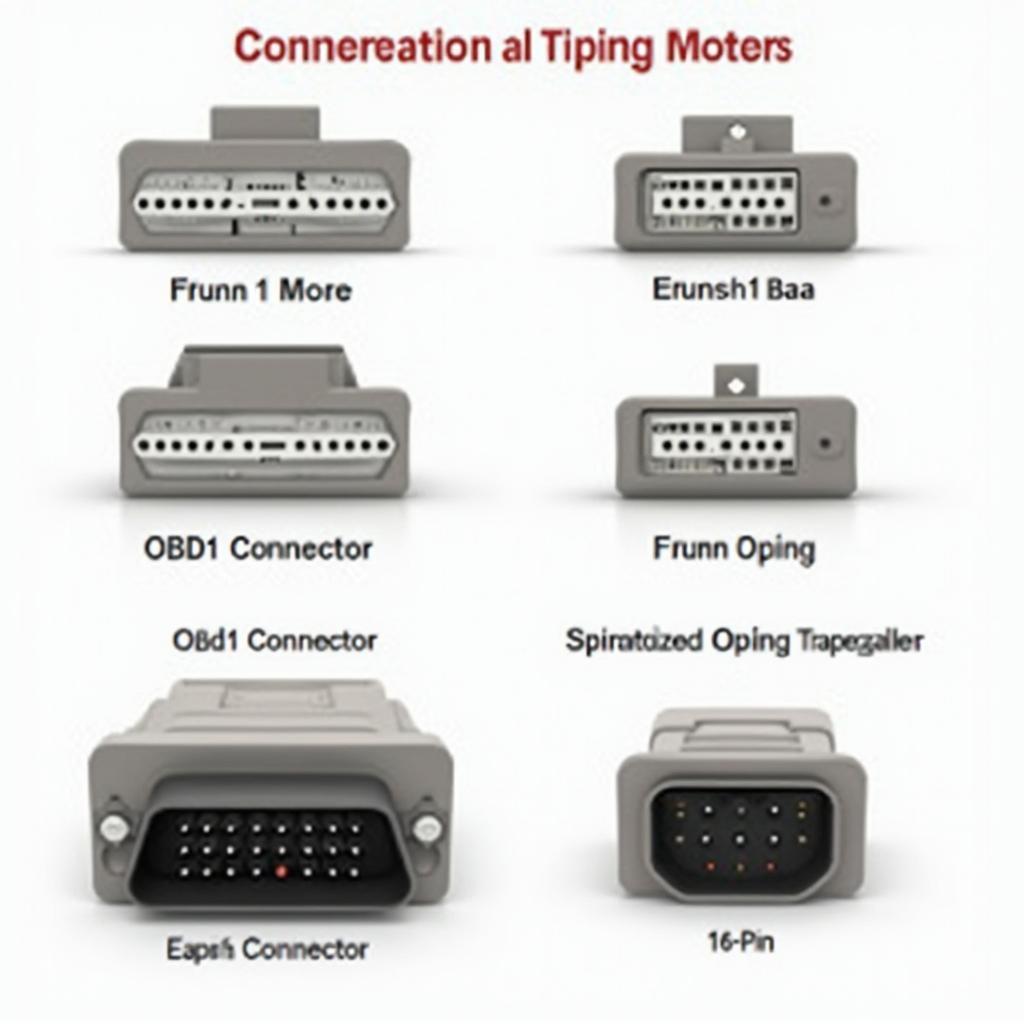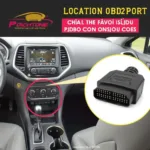OBD1 vs OBD2 tuning: What’s the difference, and which one is right for you? This article dives deep into the nuances of each system, exploring the pros and cons, and guiding you through the complexities of enhancing your vehicle’s performance.
Understanding the Basics: OBD1 and OBD2
Before we delve into tuning, let’s clarify what OBD1 and OBD2 are. OBD stands for On-Board Diagnostics, a system that monitors your car’s engine and emissions. OBD1, prevalent in vehicles before 1996, is a simpler system with limited diagnostic capabilities. OBD2, mandated in the US for all vehicles from 1996 onwards, is a more sophisticated system offering standardized diagnostics and more detailed information about your vehicle’s performance. This difference in complexity translates to distinct tuning approaches.
Tuning OBD1: A Hands-On Approach
OBD1 tuning often involves physically modifying components like the Electronic Control Unit (ECU) or adjusting fuel injectors and distributors. It’s a more hands-on process, requiring a deep understanding of your vehicle’s mechanics. While this offers greater control over specific parameters, it can be more complex and requires specialized equipment. Think of it as fine-tuning a musical instrument – you’re adjusting individual strings for perfect harmony.
Advantages of OBD1 Tuning
- Greater Control: Allows precise adjustments for specific performance goals.
- Potential for Higher Gains: Can unlock significant horsepower and torque increases.
Disadvantages of OBD1 Tuning
- Complexity: Requires specialized knowledge and tools.
- Time-Consuming: Can be a lengthy and involved process.
Tuning OBD2: The Digital Age of Performance Enhancement
OBD2 tuning, on the other hand, is primarily software-based. Using an obd2 harness, you can access and modify the ECU’s parameters through the diagnostic port. This process is often quicker and easier than OBD1 tuning, making it accessible to a wider range of enthusiasts. It’s akin to adjusting your TV settings – you’re using a remote to tweak the picture and sound.
Advantages of OBD2 Tuning
- Ease of Use: Relatively straightforward using readily available software.
- Faster Process: Quicker than physical modifications required for OBD1 tuning.
- Reversibility: Easy to revert to factory settings if needed.
Disadvantages of OBD2 Tuning
- Less Granular Control: May offer less precise control compared to OBD1 tuning.
- Potential Limitations: Performance gains might be limited by factory ECU restrictions.
Which Tuning Method is Right for You?
Choosing between OBD1 and OBD2 tuning depends on your goals, technical skills, and the specific vehicle. If you’re comfortable with hands-on modifications and seek maximum performance gains, OBD1 might be the way to go. For those seeking a simpler and quicker approach with moderate gains, OBD2 tuning is often the better choice. Consider installing an aftermarket ecu with obd2 for better performance. Knowing the integra ecu difference obd1 obd2 is crucial.
“For daily drivers, OBD2 tuning offers a good balance of performance and ease of use,” says automotive expert, David Miller. “However, for dedicated track cars where every ounce of performance matters, the granular control of OBD1 tuning remains unmatched.”
Conclusion: Making Informed Decisions for Optimal Performance
Understanding the differences between OBD1 and OBD2 tuning is crucial for unlocking your vehicle’s true potential. By weighing the pros and cons of each approach, you can make an informed decision that aligns with your goals and technical capabilities. Whether you choose the hands-on approach of OBD1 or the digital convenience of OBD2, the key lies in understanding your vehicle and choosing the path that best suits your needs. Ultimately, obd1 vs obd2 tuning boils down to personal preference and the level of control you desire. You might also be interested in learning about putting an obd2 engine and harness in obd1 or using an obd1 harness to obd2 injectors.
FAQ
- What is OBD tuning?
- Is OBD tuning legal?
- Can I tune my own car?
- What are the risks of OBD tuning?
- How much does OBD tuning cost?
- Will OBD tuning void my warranty?
- How can I find a reputable OBD tuner?
For support, contact WhatsApp: +1(641)206-8880, Email: [email protected], or visit us at 789 Elm Street, San Francisco, CA 94102, USA. We have a 24/7 customer support team.


